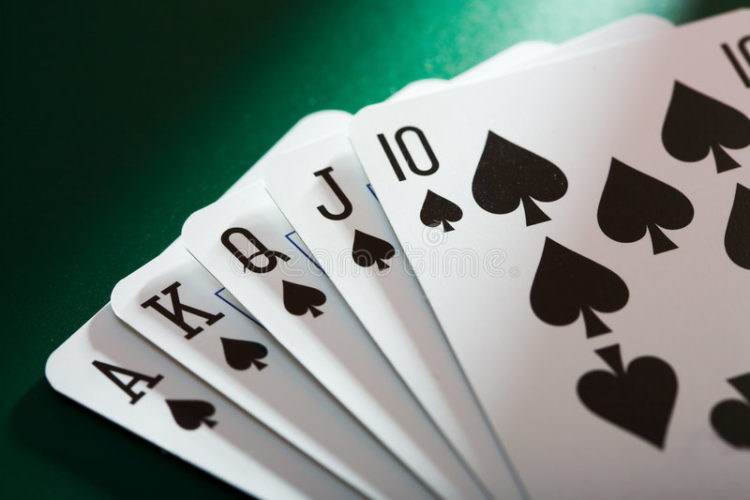The Psychological Benefits of Playing Strategy-Based Card Games

By
Strategy-based card games have been long popular not only due to their entertainment value but also due to the great psychological benefits they offer. These games demand a player’s full attention and are helpful in combating stressful thoughts and keeping the mind engaged so that there is no devil business going on up there.
Strategy-based card games, such as Teen Patti real cash game, Poker, or even Call Break and Rummy, come with easy-to-learn playing rules, but they are extremely difficult to master. Even the best players are constantly analyzing their past games and trying to do better in future games. There’s no fixed rule or fixed strategy that can help players win each time because unpredictability is at the very heart of these games.
As there is continuous learning and unlearning of these card games, they can enhance cognitive abilities, lower levels of stress, and build long-term social connections. The skill of strategizing, keeping calm in pressure situations, and the ability to make quick decisions, which are developed in playing strategy card games, prove useful while handling complicated situations in life.
Now, without further ado, let us explore how such card games impact psychological well-being.
Enhancing Cognitive Functions
Strategy-based card games challenge players to apply critical thinking, memory, and problem-solving skills. For instance, bridge and poker games require probability calculation, strategic action, and transitioning to new game contexts.
The mental activity is the equivalent of an intellectual workout, which fortifies higher-order thinking abilities and promotes neuroplasticity – the brain’s ability to modify and build new neural patterns. They can be played to sharpen recall, concentration, and overall mind sharpness.
Encouraging Social Interaction
Card games are by nature social, whether played face-to-face or on the internet. They offer a formal setting for people to interact, communicate, and cooperate. This social interaction can reduce loneliness and isolation, creating a sense of belonging and community.
For those who might have difficulty with social interactions, like those with social anxiety, card games provide a safe environment to interact with others, thus improving social skills and establishing healthy relationships.
Stress Reduction With Relaxation
Playing fun games such as card games can be a massive stress reliever. The engaging nature of the games enables participants to shift their attention from daily stresses, leading to relaxation and a good mood. Studies have established that frequent playing of card games can result in reduced stress levels, with a marked decrease in cortisol – the body’s key stress hormone – among players.
Fostering Patience and Discipline
Strategy games on cards often require the players to wait for the right moment to move, instilling patience and self-restraint. For example, in poker, players have to decide if they should hold or fold, a process requiring self-controlled decision-making. Such ability is useful even in real life, where a person controls impulsive behaviors and makes purposeful daily decisions.
Enhancing Emotional Well-being
The sense of achievement gained as a result of succeeding in executing a strategy or playing a game can increase self-esteem and confidence. Moreover, the enjoyment received while playing may cause the production of endorphins, chemical substances in the body, and create a greater mood and enhanced emotional well-being.
Maintaining a Sharp Mind to Reverse Aging
In elderly adults, engagement in strategy games on cards can be of tremendous assistance in retaining cognitive abilities. They challenge areas of the brain associated with reasoning and memory, with the potential for delaying mental decline and the onset of diseases like dementia. Challenging one’s mind with such a game is a prophylactic approach to retaining the sharpness of the mind among older adults.
Teaching Useful Life Skills
Other than entertainment, card games teach important life skills, such as planning, risk assessment, and adaptability. The players are able to read their opponent’s moves, manage resources, and change strategies based on new circumstances. All these are skills that are applicable in a wide range of life situations, enhancing problem-solving abilities and decision-making processes.
Providing a Feeling of Structure and Routine
Playing card games every day can provide a sense of predictability and order, which is beneficial for one’s mental well-being. Game nights or game sessions online can provide individuals with something to look forward to, adding a healthy element to one’s weekly or monthly routine. This routine is especially beneficial for individuals who are prone to mental health problems since it provides them with a solid and enjoyable activity to relax with.
Encouraging Mindfulness and Focus
Card games require attention and presence, which can make them a form of meditation. Players can sit quietly, clear their minds of outside thoughts, and concentrate solely on the game. This practice has been found to reduce stress and enhance clarity of mind.
Creating a Sense of Community
Wherever it is played, be it in local clubs, online communities, or social gatherings, card games bring people together, fostering a sense of belonging. That shared camaraderie can turn into sustained friendships and support networks, all of which can be beneficial to the mind. Being part of a group provides individuals with a sense of belonging as well as a sense of meaning, both of which are central to psychological well-being.
Boosting Emotional Regulation
Card games tend to produce unforeseen outcomes and demand that players maintain emotional control, be it while suffering a string of losses or experiencing an unplanned turn of events. The feature of the game can enhance people’s control of their emotions such that they handle frustration, exhilaration, and disappointment in an orderly way. Such skills translate to their real lives through handling stress as well as other human relationships.
Promoting Lifelong Learning
The variety of card games out there means that there is always something new to discover, and the mind stays active and encourages lifelong learning. Whether it’s learning a new game or learning advanced strategies for an old one, this process of continuous learning keeps the brain active and can result in a more satisfying life.
Summing Up
In conclusion, strategy-based playing cards possess a wide range of psychological benefits that are more profound than mere entertainment. They are tools for brain enhancement, social connection, stress relief, and personal development. Utilizing these games as part of one’s daily routines can lead to improved mental health and a more satisfying, interconnected lifestyle.
sooperarticles.com







No Comment